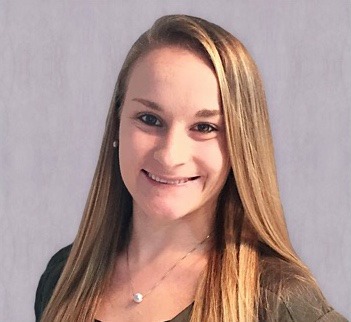
Holistic ADHD Treatment: What Does That Mean?
Around 6.4 million American children and teens live with attention deficit hyperactivity disorder (ADHD). [1] Adults can also have ADHD, and the Centers for Disease Control and Prevention (CDC) estimate that about 4.4% of adults living with ADHD.
Kentucky in particular has the highest rate of ADHD in the country with 19% of children diagnosed with ADHD. [2] At NextStep 4 ADHD, our team of psychiatrists, pediatricians, psychologists, therapists, coaches, and healthcare professionals offers treatments to help you not just manage ADHD — but thrive.
As an understanding of ADHD continued to grow over the last decade, the demand for treatment has also grown. The options for treating ADHD are more diversified than ever. There is certainly a lot of misinformation about ADHD that can often leave you uncertain and confused.
Don’t worry — you have come to the right place. We offer a wide range of comprehensive ADHD treatment options for you and your family.
NextStep 4 ADHD Serving Louisville, Kentucky
We proudly serve the Louisville, Kentucky area. This includes general psychiatry and ADHD treatment. Located on Park Plaza Avenue, our providers are happy to offer coaching, support, education, and in-clinic services to both adults and children. To request an appointment, click here.
What is ADHD?
Attention deficit hyperactivity disorder (ADHD) is a common mental health condition that impacts concentration, decision-making skills, and impulse control.
How Is ADHD Treated Holistically?
Untreated ADHD can affect your home, work, and even your relationships, but ADHD is treatable, and you can thrive with it! Medication is a hot topic when it comes to ADHD treatment, but it’s not the only option for treating ADHD. In fact, it can be just one aspect of a treatment plan.
There’s where holistic ADHD treatment comes into play. A holistic approach to mental health puts you as the patient — not your diagnosis — at the center of your treatment plan. By addressing their emotional, mental, and physical needs, a holistic approach to mental health means that we look at the whole person.
The team at NextStep 4 ADHD focuses on 5 core areas when approaching ADHD treatment: assessment, education, coaching, support, and medication.
Assessment
An accurate diagnosis is the key to managing your ADHD symptoms. An accurate assessment begins with a consultation with clinicians who are trained to diagnose and treat ADHD.
ADHD affects every part of your life — from getting organized to completing work projects — and working with an experienced ADHD specialist ensures that you get the treatment and tools you need to thrive.
We are experts in ADHD and know what to look for during the assessment.
Education
We don’t just diagnose you; we help provide education to you through discussions, resources, coaching, etc. General education about ADHD is essential for improving your life skills. We’ll help you learn how ADHD affects you individually, as well as how it impacts your family, loved ones, and even your co-workers.
Coaching
ADHD coaching helps you better manage your symptoms by teaching you how to practically apply the right tools and strategies to your life. ADHD coaching also provides accountability, so you can build successful behaviors and routines — and achieve your goals.
Support
Interacting with others who are experiencing similar challenges reduces any stigma or shame associated with ADHD. Maybe you’re a parent of a child with ADHD. Maybe you’re an adult with ADHD trying to build more organizational skills. Building a support system is essential.
At Next Step 4 ADHD, we support you as you make progress on your journey.
Medication
There’s no denying that medication can be effective, and it can be life-changing. Even though it is often the first line of treatment for ADHD, medication alone is not the answer.
As we say, pills don’t create skills.
Let us show you the benefits of a holistic and personalized ADHD treatment plan.
Spotlight on Our ADHD Care Team
Learn more about our compassionate and expert team here.









Your ADHD Center in Louisville, Kentucky
At NextStep 4 ADHD, we’re happy to provide comprehensive ADHD care. Whether you’re interested in in-clinic therapies or ADHD coaching, we are here to guide you with your next steps.
If you or a loved one needs to schedule a visit in our Louisville, Kentucky clinic, send us a message to request more information.
References:
- https://www.cdc.gov/ncbddd/adhd/data.html
- https://www.courier-journal.com/story/life/wellness/health/2014/05/02/kentucky-tops-us-adhd/8564911/

10 Benefits of Exercise (Plus, How to Make It Part of Your ADHD Treatment Plan)
There’s no denying that the right ADHD medication can make a big impact in your quality of life. But do you know that exercise can also help you manage your ADHD symptoms?
We talked to Next Step Health Coach Pam Valdes to understand the benefits of exercise and how/why exercise should be a part of your holistic ADHD treatment plan.
Why Exercise is Important if You Have ADHD
Exercise isn’t just good for losing weight or building lean muscle mass — although it does help with those goals. Exercise can help keep your brain in shape, too.
Here’s how exercise helps your brain work better:
Exercise releases neurotransmitters:
When exercising, the brain releases endorphins – hormone-like compounds that regulate mood, pleasure, and pain. Exercise also elevates dopamine, norepinephrine, and serotonin, which affect focus and attention – this is what stimulants do. People with ADHD often have less dopamine than usual in their brain, and dopamine helps with clear thinking and attention.
Exercise turns on the pre-frontal cortex:
Exercise also turns on the pre-frontal cortex of brain, which plays a major role in strengthening your executive function skills. Pam explains, “Neuropsychological effects of exercise are greatest with those individuals with baseline executive function deficits, as commonly seen in ADHD.
Exercise improves brain structure:
Yep, you read that correctly: exercise improves brain structure and functioning – one of the few things that can be done after age 25 to increase neurogenesis.
Physical activity is one of the most underutilized interventions to improve ADHD-related cognitive function. This doesn’t mean exercise is a replacement for medication. Pam explains, “It’s not a replacement for meds, but an important complement to it, and exercise can sometimes reduce amount of medication needed.”
10 Benefits of Exercise
Exercise can affect your physical health as well as your mental health whether you have ADHD or not. According to Pam, exercise can provide the following ten benefits:
- Improved concentration, focus, and attention
- Improved regulation of mood – it can help you feel more calm and less irritable, and even reduce the symptoms of depression
- Improved quality and quantity of sleep
- Increased productivity
- Reduced stress
- Improved working memory and clarity of thought
- Increased motivation
- Increased sense of control, less hyperactivity, more impulse control
- Improved general health
- Increased self-confidence and sense of self-efficacy – reduces learned helplessness
According to the CDC, these benefits extend to both adults and children.
How ADHD Can Impact Exercise
While exercise can reduce the severity of ADHD symptoms, the reverse is also true. Unmanaged ADHD can impact your exercise routines. In fact, Pam says, “Individuals with ADHD tend to be less physically active.” But why? Below are a few examples of how unmanaged ADHD can affect your ability to stay active:
- Struggling with motivation and impulse control can make it difficult to begin exercising
- Poor planning can create problems putting an exercise goal into action
- Overscheduling and over commitment can make it hard to make time for exercise
- Procrastination can make it easy to put off your exercise plan
- Poor organization skills can make it a challenge to make arrangements to exercise
- Problems with prioritization can make easy to put your needs last
- Feeling down or depressed can make it a challenge to take any action
Do you find yourself agreeing with the above statements? You’re not out of luck, though! With a multidisciplinary-treatment plan, coaching, therapy, and medication can help you reach your goals.
How Much Exercise Do You Need?
“Some physical activity every day is best, but that doesn’t mean you have to go to the gym everyday – ways to work small bursts exercise into your day,” Pam explains.
“A 2006 study by Arthur Kramer, Ph.D., used MRI scans to show that walking as few as three days a week for six months actually increased the volume of the prefrontal cortex in older adults,” she continues. This means that exercise can produce immediate results and can be used right before a test or important meeting to optimize brain function.
Don’t forget to follow the 5-minute rule: Even a little bit of exercise (just 5 minutes if that’s all you can find) is so much more than none!
What Kind of Exercise Is Best for ADHD?
“Any exercise is beneficial, but exercise that incorporates balance, strategy, focus, and sequencing can be especially helpful,” Pam explains.
Any of the martial arts, ballet, ice skating, gymnastics, rock climbing, mountain biking, whitewater paddling, and skateboarding are especially good for adults and children with ADHD. Why, exactly? The technical movement inherent in these types of sports activate a vast array of brain areas that control balance, timing, sequencing, evaluating consequences, switching, error correction, fine motor adjustments, inhibition, and, of course, intense focus and concentration.
That is not to say that activities such as lifting weights or going for a walk are not helpful – they are! Consider outdoor workouts for mood-enhancing benefits. Yoga and Pilates can be great for calming the mind, in addition helping with focus and concentration.
Bottom line: The best kind of exercise? The kind that you will stick with and enjoy!
Exercise As Self-Care
Exercise is a great form of self-care, and it’s something that you should incorporate into your daily schedule. You can learn more about the benefits of exercise and other forms of self-care in our free video series, “A Happier You Starts with Self-Care.”
Exercise as Self-Care
Nutrition as Self-Care
Sleep As Self-Care
Get the ADHD Treatment You Deserve
Here at Next Step, we’re proud to offer a multidisciplinary and holistic approach to you and your child’s mental health needs. Whether you’ve been diagnosed for years, or you’re just now starting your treatment journey, we can guide you with your next steps so you and your family can thrive. Call us at 502-907-5908 to get started.
About Pam Valdes
 Pam Valdes is a certified Health Coach with a focus on ADHD coaching. She has a strong background in wellness and counseling. She has provided caring coaching services to adults and teens for over 10 years.
Pam Valdes is a certified Health Coach with a focus on ADHD coaching. She has a strong background in wellness and counseling. She has provided caring coaching services to adults and teens for over 10 years.
ADHD Myth Series: Is It Okay to Stop Taking ADHD Medications on School Breaks?
With summer drawing closer and closer, many parents of children with ADHD start to wonder if they should pause their child’s ADHD medication during the school break, but is this a good practice for children with ADHD? We’ve interviewed Dr. Brian Briscoe to help us de-bunk this myth.
What’s a Medication Holiday?
A medication holiday is a “deliberate interruption of pharmacotherapy for a defined period and for a specific clinical purpose,” according to a study published in the Journal of Psychosocial Nursing and Mental Health Services. Sometimes medication holidays are used to assess the efficiency of a certain type of medicine.
However, there are many myths surrounding ADHD, including that it’s okay to take a medication holiday from ADHD medication on weekends, school breaks, and summer vacations. This can be problematic for a few reasons.
Consequences of a Medication Holiday
Stopping any type of prescribed medication suddenly can cause problems. Research shows that medication holidays can increase the risk of “destabilizing patients, difficulty in distinguishing [between] rebound and discontinuation effects, and increasing the risk of poor medication adherence.”
In addition, children may need their medication for more than just improving school performance.
ADHD Affects All Aspects of Life
ADHD affects all aspects of life — not just school or work performance. This means that your child’s ADHD medication affects more than just his or her performance in school.
ADHD can affect your child’s:
- Home life
- Relationships
- Ability to manage emotions and impulsivity
In other words, to stop ADHD medication over a school break can impact your child’s ability to successfully navigate through his or her life. For example, he or she may start to struggle with projects and daily tasks at home.
Dr. Briscoe highlights how quickly stopping the medication can compound problems: “When things pile up at home — incomplete projects, dishes, laundry, etc. — it can create problems on the home front, as well as anxiety for the person who suffers from ADHD.” This is true for both adults and children. Children might feel overwhelmed by incomplete chores, etc.
This means that a sudden break from medication can extend far beyond school or work performance.
The Effect of Medication Holidays on Relationships
Remember that ADHD affects relationships, and that’s true for children, too. ADHD can affect the ability of children to engage in — and stay focused on — conversations. Some children with ADHD can struggle to manage intense emotions, and some may struggle with tendencies to act before thinking, to act on impulse. (Keep in mind that impulsivity is one of the categories of symptoms of ADHD.)
Medication can help reduce the severity of symptoms in your child, and when symptoms are managed, it’s easier for your child to engage in relationships.
ADHD Medication & Behavior
ADHD medication can help your child manage his or her behavior whether school is in session or not.
According to Dr. Briscoe:
Children with ADHD experience difficulty regulating their behavior just as much at home as they do at school. As children’s behavior (i.e., hyperactivity, impulsivity, difficulty regulating attention, follow through, etc.) wears on parents and other caregivers, caregivers can begin to show signs of impatience, and sometimes speak in ways that may be a bit discouraging to a child.”
As parents become frustrated, the child can then “internalize these messages (‘I can’t get anything right’, ‘I’m lazy,’ ‘I’m stupid,’ ‘I’m a bad kid’), which can have negative impacts on their self-esteem and overall mental health on a long-term basis.”
The Takeaway
ADHD medication can help a child in all aspects of his life, including:
- Home life
- Relationships with family members and peers
- Regulating behavior
- Managing emotions
To take a break from medication solely because a child is out of school can cause repercussions in other areas of your child’s life. If you do have concerns about your child’s medications, including side effects or dosage questions, it’s important to speak to your child’s provider. Never stop a prescribed medication or adjust dosage unless directed to do so by a mental health professional. That’s because suddenly stopping certain medications can cause withdrawal symptoms, even if you take your medication as directed.
Other ADHD Myths
Unfortunately, this isn’t the only myth about ADHD, but we’re committed to sharing the truth about ADHD. You can read more about the myth about outgrowing ADHD here.
Your Next Steps
Medications can help significantly in all the areas we discussed, but it’s essential to remember that skills-building (i.e., learning strategies and tactics to cope with ADHD) and effective parenting techniques are equally important. At Next Step 4 ADHD, we are all about comprehensive holistic care so that your child can not only survive, but thrive with ADHD.
Trying to deal with your child’s ADHD on your own can be difficult, but with our innovative approach, you’re never alone. We are here to guide you with your next steps. If you’d like to learn more about us or set up a confidential discussion with one of our professionals, you can complete this form for a virtual appointment. Alternatively, call our Louisville, Kentucky office at (502) 907-5908.
Learn More
